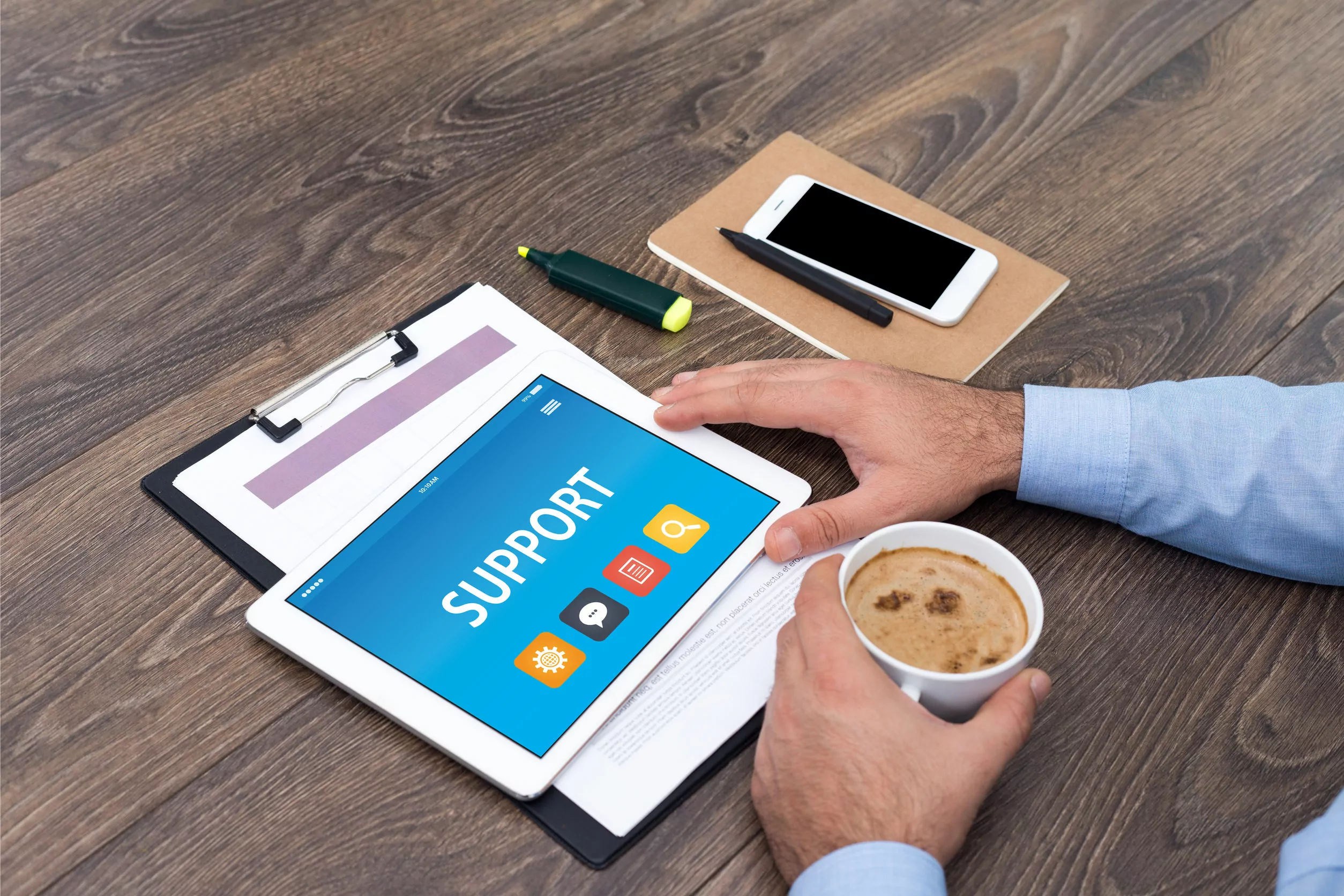
From in-person support groups to online support groups to social media “groups” – vestibular patients are connecting with their peers in many ways.
Before the internet the only way for vestibular patients to connect with others was through in-person support groups. Support groups provide a unique and critical service: acceptance. This forum allows individuals to ask questions and to learn in a non-judgmental and safe environment. Participants know that everyone attending the support group meeting understands and has compassion for the functional difficulties of getting through each day. As a result, less frustration and energy are spent on proving or defining limitations. More energy is available for appreciating the character and companionship offered by others, and recognizing personal self-worth.
Unfortunately, there aren’t enough brick-and-mortar support groups to meet the needs of all vestibular patients. In addition, some patients cannot attend an in-person support group, either because they can’t leave their house due to the nature of their symptoms, or due to transportation limitations.
Recognizing this need, VeDA’s volunteer Patient Support Committee started organizing online support groups, which meet “live” via video conference or phone.
Social media has spurred other ways for vestibular patients to connect. There are several “closed groups” on Facebook facilitated by vestibular patients looking to give people a place to share their experiences and get feedback and support from their peers. The beauty of these groups is that people can access them whenever it is convenient for them. One such group called “Vestibular Disorders Support Group” has grown to over 8,700 members; with so many participants, there is a great deal of shared knowledge and experience.
Karen shared her experience of participating in this group:
“Last August I hit bottom on this vestibular journey. I had seen 7 doctors, all of whom looked at me like they wished I was in anyone else’s office besides theirs. I had just quit my job teaching, which was the center of my world. Being divorced and having grown children living out of state, I was alone with this challenge. There was no one that really understood or even quite believed what I was going through. As I continued to search for answers and a diagnosis (vestibular migraine with cervicogenic features) I turned to the Internet for information. Luckily I found VeDA and the Vestibular Disorders Support Group on Facebook. I can remember the joy I felt discovering that other people had similar experiences. And best of all, they were sharing ideas, successes, frustrations and most of all, compassion. I was stunned that I was not alone with this disorder. The time I have spent talking with people on the Facebook support group has been a complete lifesaver. Many days they were the only conversations I had. As I’ve continued on this journey, finally finding a diagnosis, good physical therapy and making lifestyle changes, VeDA has been at the center of my support. The information VeDA provides is invaluable in learning about and coping with this disorder. Just knowing that anytime I check in with the Facebook support group there are people who understand makes me feel once again connected to the world. Thank you for the help, the information, the connections and the hope.”
There are also ways to connect with other vestibular patients one-on-one. VeDA donors can join “V-Pals” – a pen pal network. Members of V-Pals receive a monthly email with a list of the names and email addresses of other patients that they can reach out to.
Whatever type of support network that works best for you, remember, you are not alone.
You can search for a support group in your area, or sign up for V-News, VeDA’s free monthly e-blast to receive a listing of upcoming support group meetings.
Online support groups are also available.
